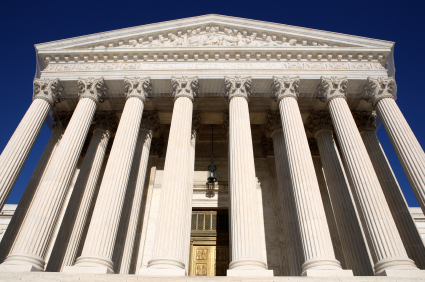I’ve been somewhat remiss in posting updates, but I’ve had good excuses. Last week I was in Maui, speaking at the ACOG district conference. Then I took the red-eye to the West Coast to attend my son’s wedding, which was awesome.
In the interim, there have been multiple articles about the lawsuit. Mass Lawyer’s Weekly featured it on the front page, in conjunction with a similar lawsuit brought by Harvard Law Professor Lawrence Lessig, a noted authority on copyright: Cases Promise Clarity on Takedown Notices.
Two federal suits in Boston … are expected finally to answer the question of how much good faith a copyright owner must have before issuing a takedown notice under the Digital Millennium Copyright Act.
Lessig’s complaint, which is pending before U.S. District Court Judge Nathaniel M. Gorton, raises the same issues of first impression addressed last week by U.S. District Court Judge Richard G. Stearns in Tuteur v. Crosley-Corcoran, a copyright case brought by a former clinical instructor at Harvard Medical School.
Why did Prof. Lessig file his lawsuit?
Lessig’s suit concerns a keynote address he delivered in 2010 at a conference in South Korea. The lecture was about cultural developments in the age of the Internet. During the discussion, Lessig showed portions of a copycat video phenomenon that involved computer users around the world posting music videos of the song “Lisztomania” by the French rock band Phoenix. Lessig, the founder of the Stanford Center for Internet and Society who is an outspoken advocate for fewer copyright restrictions, put the lecture on YouTube. In response, the band’s Australian record company, defendant Liberation Music, sent him a takedown notice threatening to sue him for violating its copyright. YouTube took the video down, but Lessig and his lawyer … responded by filing suit under Section 512(f) of the DMCA. Co-counsel Daniel Nazar of the Electronic Frontier Foundation said Lessig’s academic lecture was “so clearly a fair use” that the record label’s takedown notice amounted to a knowing misrepresentation.
Daniel Nazar of the Electronic Frontier Foundation explains why they filed an amicus brief in support of my position:
Although Tuteur’s case involves a dispute over home-birthing, Nazar said, it raises important questions about the standard of proof needed to issue takedown notices, which is what prompted his brief and an opposing one from the Motion Picture Association of America.
“The MPAA doesn’t want to have to consider whether something is authorized by law before they seek to remove it from the Internet,” he said. “That’s a really big problem for free speech because placing the onus on the speaker to defend their critical content is not how it should be, and it is not what the law requires.”
On Monday, September 30, Mass Lawyers Weekly published an editorial on the cases, Takedown cases provide opportunity to clarify law:
The cases have received a significant amount of media attention because the objects of the takedown requests are well-known individuals with the wherewithal to fight back. Most people hit with such a notice can’t afford to get into a legal battle and simply cave.
Unfortunately for Liberation Music and Crosley-Corcoran, Lessig and Tuteur are not only prepared to litigate, they’re also prominent enough to attract amici support. In Tuteur’s case, a joint brief was submitted by the Electronic Frontier Foundation, the Digital Media Law Project in Cambridge and Harvard’s Cyberlaw Clinic.
The bad news for these defendants is good news for attorneys seeking to know where the lines should be drawn in a complicated area of the law. Currently, the correct standard is unclear: While
copyright holders must have a reasonable and articulable basis for sending a takedown notice, there’s a lot of uncertainty over what constitutes sufficient cause.Now, because Lessig and Tuteur have stepped up, the end result could be welcome clarity where there has been little guidance.
The next step in my lawsuit is discovery, which involves reviewing documents and taking depositions. That phase must be complete by February 7, 2014.


